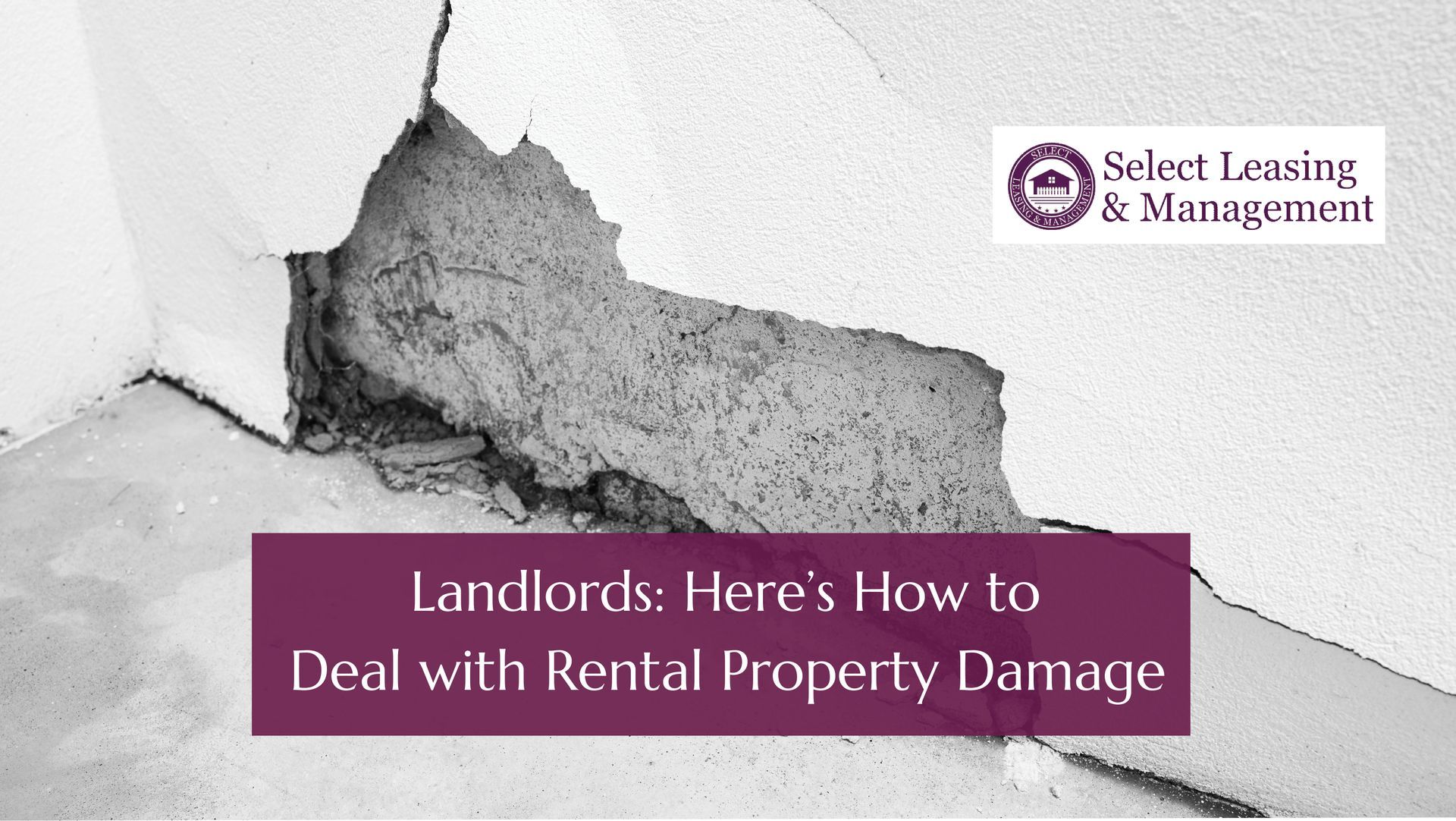Why Hire a Property Management Company? Here Are 8 Great Reasons

Why hire a property management company? The answer is easy for investors who never meant to be hands-on landlords. Dealing with the day-to-day demands of a building and its tenants takes a toll, leaving many rental property owners feeling overworked and overwhelmed. Even DIY landlords who think they have everything under control can end up needing help.
We’ve compiled eight red flags for landlords that may signal that they’re reaching their breaking point. A reputable property management company like Select Leasing & Management can lighten the load and might even increase profits.
1. You’re Playing Whack-a-Mole With Repairs and Maintenance
Upkeep takes a great deal of a property owner’s time. In addition to routine tasks like cleaning common areas, mowing grass, and periodically refreshing paint, flooring, and fixtures, something will almost always need fixing. This is especially true as a building ages.
While the landlord of a single rental might be able to keep up, the more properties owned, the harder it becomes. Broken pipes, leaky faucets, burned-out lights, failed heat or A/C—the list goes on and on. A property management company could field these calls and make repairs, but DIY landlords are on their own to do the work, or to find someone else who can.
2. You Don’t Have a Head for Numbers or Paperwork
Owning rental property is a business, and as such requires some administrative and bookkeeping skills. Knowing what to charge for rent, understanding leases, and making decisions about if and when to make capital improvements are all important—but these tasks aren’t everyone’s cup of tea. There’s no shame in admitting that you don’t understand how to calculate the return on investment of a new roof, or that you don’t know which property management expenses are tax deductible.
Property management companies provide expertise that an individual property owner might lack. They know what needs to be in a lease, can determine what rent to charge in the local market, and can deliver detailed financial reports each month.
3. You’re Tired of Being the Bad Guy
Most landlords agree that finding good tenants is one of their biggest headaches. Even the best landlord-tenant relationships can have sore spots and disagreements. It can be disheartening for a landlord to continually remind renters of the rules regarding things like noise complaints, occupancy limits, or paying rent on time. And delivering the news that the rent is going up is never pleasant.
Property management companies act as the landlord’s spokesperson and legally-appointed go-between. They can handle all of those uncomfortable conversations and even take steps to terminate a lease or start the eviction process when necessary.
4. You’re Spending Too Much Time—and Gas Money—On the Road
Maybe you once lived near (or possibly even in) the apartment building you own. Moving a considerable distance away will make it much harder to be on-site taking care of things. Not only will getting back and forth for routine maintenance mean a lot of time in the car, but taking too long to drive across town is not going to cut it in an emergency.
A property management company can be available 24/7, either with an on-site manager or a network of resources they can call on when needed. This is extremely helpful for landlords who are not close by—and it’s essential for those who decide to relocate to another city or state.

5. Your Personal Life is Nonexistent
Self-managing a rental property means accepting that personal time can be interrupted at any moment. Without reliable backup, it can be hard to take a vacation, attend family events, or simply enjoy a quiet weekend at home.
A property management company can give landlords their time back. Knowing someone is in charge will give them the freedom and peace of mind to do the things they want to do, without getting a call from a tenant or having to worry about the daily, weekly, and monthly maintenance schedule.
6. You Worry About Lawsuits
When considering “Why hire a property management company?” landlords should ask themselves another question: “How confident am I in what I can and can’t legally do?”
The business of renting property is subject to strict local, state, and federal laws. Mistakes can subject a landlord to fines and lawsuits. They need to be careful to follow rules such as:
- They must not discriminate
- They need to understand the rights and obligations outlined in lease agreements
- They must respect tenant rights like when they can legally access their rental units, or whether or not they have to allow emotional support animals
- If they neglect to fix problems and someone gets hurt, they could be on the hook for personal injuries in a premises liability suit.
Property management companies make it their business to keep current on all laws pertaining to rental property so the landlord will not have to worry about missteps that could cost them money or land them in court.
7. You’re Losing Money On Your Investment
Losing money on a rental property deserves a careful look at the finances. Is the rent high enough? Is failure to collect rent on time resulting in owing late fees on expenses or the mortgage? Has the cost of maintenance and repairs gone way up?
It may seem counterintuitive—why hire a property management company if finances are already stretched thin? In addition to saving landlords time and headaches, the value a property manager can add is usually well worth the cost. Their expertise in the local rental market helps them set rent competitively. They also have the time and resources to market the property to attract good tenants and have access to the best tools for criminal background checks. Successful property management companies either have their own staff or a network of contractors to do any work that is necessary.
Every situation is different, so landlords will need to crunch the numbers to compare the time and money they spend to the fees charged by a property management company. However, entrusting a company with the time-consuming work of managing a rental could be what makes the investment profitable.
8. What Started as a Side Hustle Is Turning Into a Full-Time Job
Consider the example of two homeowners who move in together leaving an empty home, or someone who inherits a house from their parents might choose to rent out rather than sell the property. They look forward to the additional income and assume they’ll be able to handle the property management by themselves.
Landlords like these typically look at their rental as something they’ll take care of in their free time, not a full-time pursuit. But often it will become too time-consuming or physically demanding, especially while trying to keep up with a full-time job. This isn’t good for the landlord’s well-being or their family life. Plus, the property could end up being neglected and losing its value. These are all perfect arguments for hiring a property management company.
Is the Answer to “Why Hire a Property Management Company” Becoming Clearer?
If you are a landlord experiencing any of the eight situations listed above, it’s time to consider a professional property management company. In the St. Louis region, Select Leasing & Management has been helping owners with the day-to-day operations of their rental properties for years. Contact us today to learn how we can give you back your time, save you money, and safeguard your investment.
Cover image by Gustavo Fring from Pexels by Canva.com
Share this post










